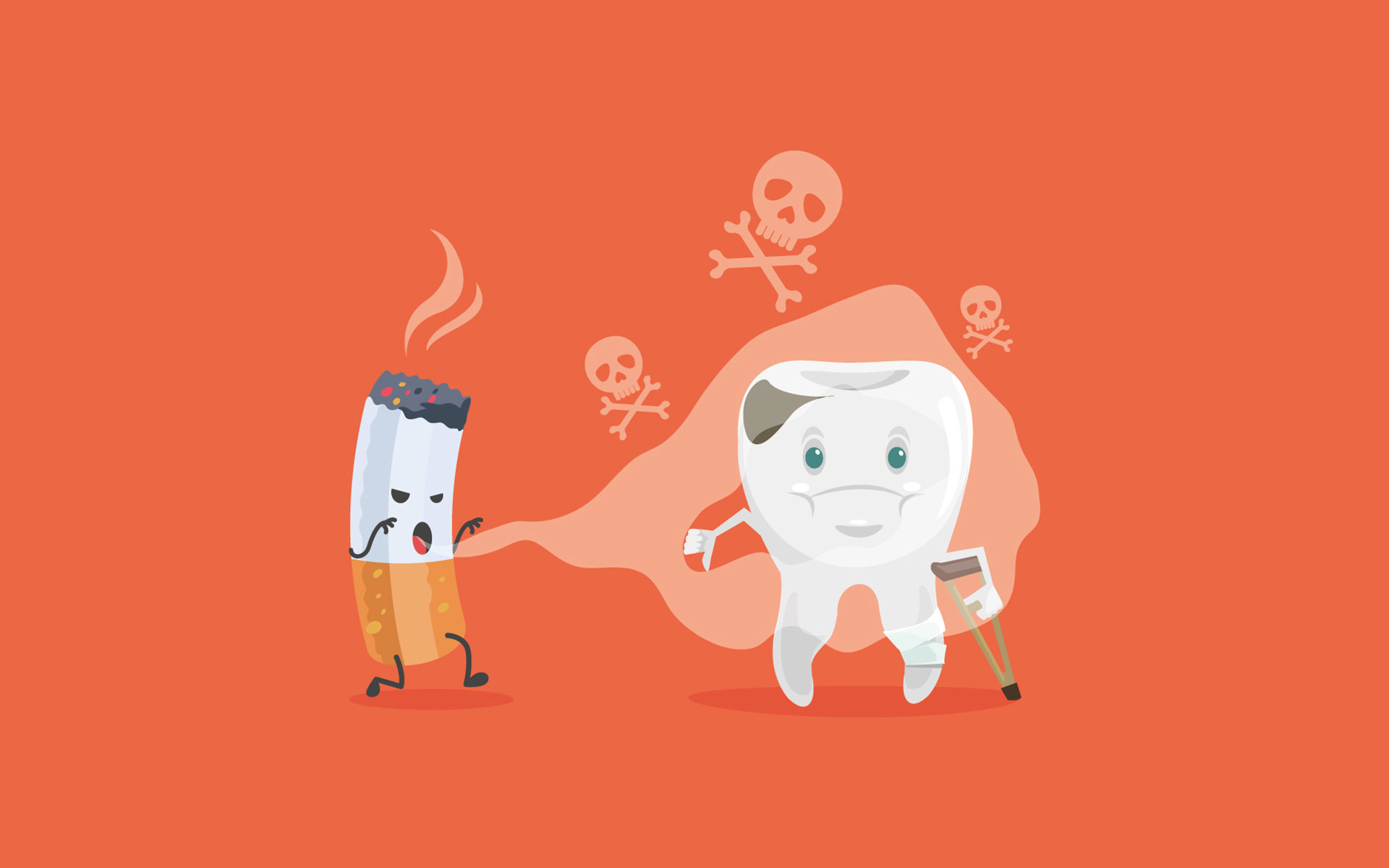
Effects of Smoking on Oral and Dental Health

Smoking not only affects general health, but also negatively affects oral and dental health in many ways. In particular, it causes problems that cannot be solved in terms of aesthetics and affects the self-confidence of people. The nicotine and cigarette smoke in cigarettes cause tooth discoloration and staining. In addition to creating an aesthetically bad image, smoking accelerates the formation of tartar and plaque. If you do not have a correct oral and dental cleaning routine, these tartar and plaques cause serious health problems in the future. For this reason, you should limit or completely stop smoking for both your general health and your oral and dental health.
Oral and Dental Diseases Caused by Smoking
Oral cancer is one of the most important health threats faced by smokers. Smokers are more vulnerable to many cancers, especially mouth and lung cancer, than non-smokers. They're also more likely to get respiratory infections and heart disease. Inflammation observed in the respiratory tract causes the proliferation of cancerous cells in the gums, throat and lips. Smoking causes a rapid increase in cancerous cells due to the damage of toxic substances in cigarettes to healthy cells. One of the causes of gingivitis, various gingival diseases, gingival recession and tooth loss is smoking.
Smoking prolongs the process of getting results from oral and dental treatments. This is because smoking causes narrowing of arteries and veins. The blood flow through the narrowed veins is not healthy enough. Slowdowns and restrictions in blood flow prolong the healing process of the treated area after oral and dental treatment. In some cases, recovery may not occur at all. Not only the damage to the veins, but also the placement of chemicals such as nicotine in cigarettes on the treated area prolongs the healing process. The reason for this is that the area where nicotine is placed is likely to become infected and irritated.
How can the effect of smoking on oral and dental health be reduced?
If you can't quit smoking despite trying all kinds of ways, you can take some steps to protect your oral and dental health. However, the surest solution would be to quit smoking. To protect your oral and dental health from the negative effects of smoking, you should pay attention to the following steps;
- You should establish a correct oral and dental care routine. You should brush your teeth at least twice a day, gargle and floss regularly. Only in this way can you prevent the formation of plaque and tartar and preserve your natural tooth color.
- If you have calculus or changes in the color of your teeth, you should definitely visit your dentist and have the necessary cleaning procedures performed.
- You should visit your dentist regularly. Thus, you can diagnose oral and dental diseases early or prevent disease formation.